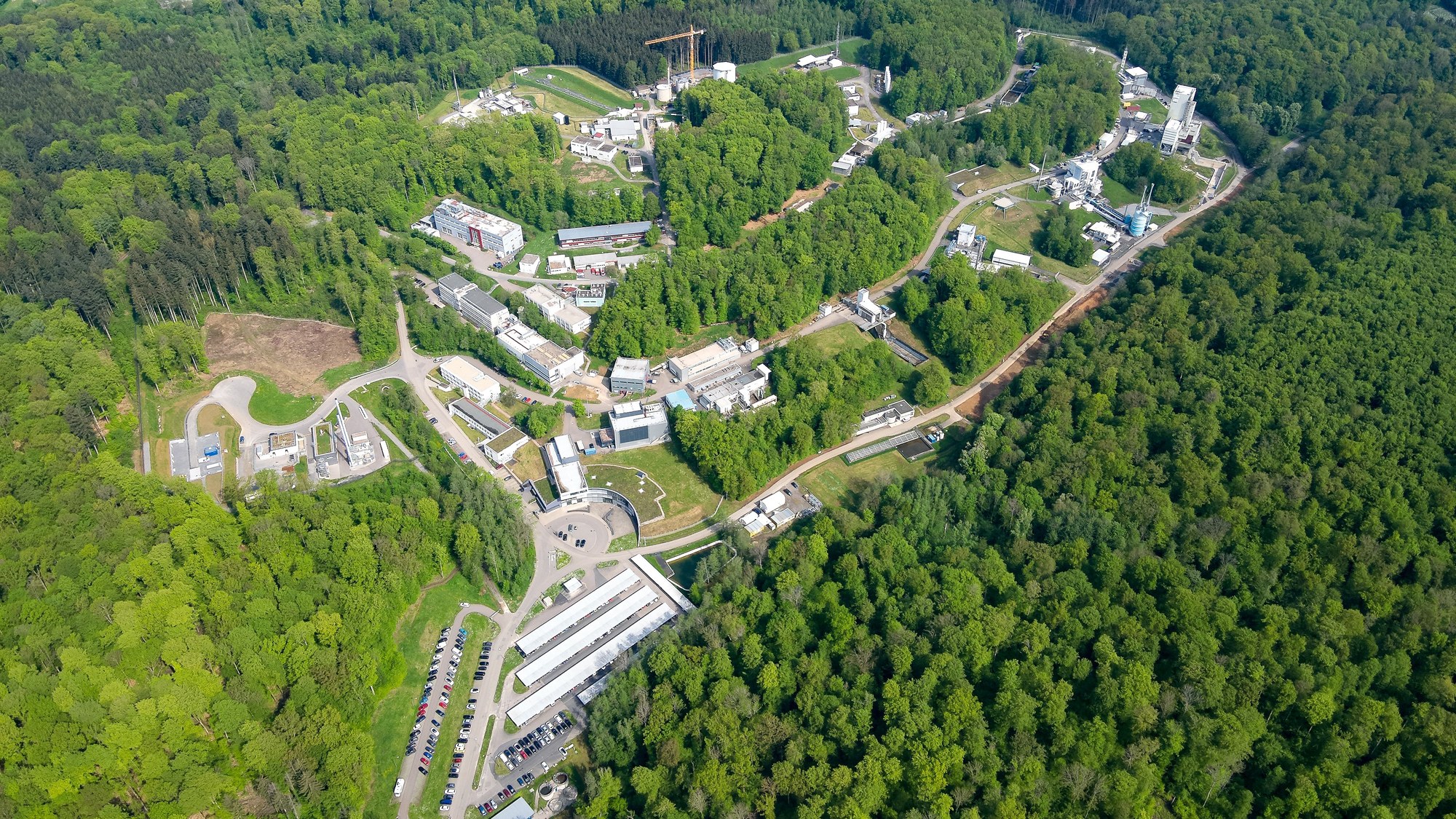Space Flight

The DLR test site in Lampoldshausen is an important German contribution to securing Europe's independent access to space and the success of current and future European space projects. To this end, the DLR Institute of Space Propulsion offers companies and organizations the services and test facilities of the site. Development and acceptance tests for liquid chemical space propulsion systems are carried out on the test benches, from attitude control engines (> 0.5 N thrust) to apogee engines (> 200 N thrust) and main stage engines (> 1300 kN thrust), such as Vulcain 2.1 or Prometheus. The upper stage competence with the test campaign of the complete Ariane 6 upper stage with the Vinci upper stage engine should be emphasized.
The DLR Institute's research promotes the development of sustainable rocket engines and supports both German and European space programs. To this end, the DLR Institute works closely with the European Space Agency (ESA), the French space agency Center National d'Études et de Recherches Spatiales (CNES) and industry.
The innovative research topics range from pre-combustion chambers, turbopumps, thrust chambers, rocket nozzles, fuel management, ignition, cooling and combustion instabilities to service life measurements and production techniques. In the DLR LUMEN project, the focus is on a understanding of the entire propulsion concept of a methane demonstrator engine. The system competence is also used to research and demonstrate the control of test bench processes and the autonomous control of engines themselves using machine learning or Artificial Intelligence methods.
Another focus is the development and testing of advanced green propellants, which are to be used as an alternative to hydrazine-based fuels in satellite engines. Research in this area also includes the development, investigation and derived optimization of suitable small engines.
The DLR Institute is unique in Europe with its capabilities and expertise in the development, construction, installation and operation of large-scale facilities for testing rocket engines on the one hand and its scientific research and development activities on the other. It is able to support projects from the earliest phase through to final qualification, i.e. a certified rocket engine or rocket stage.
